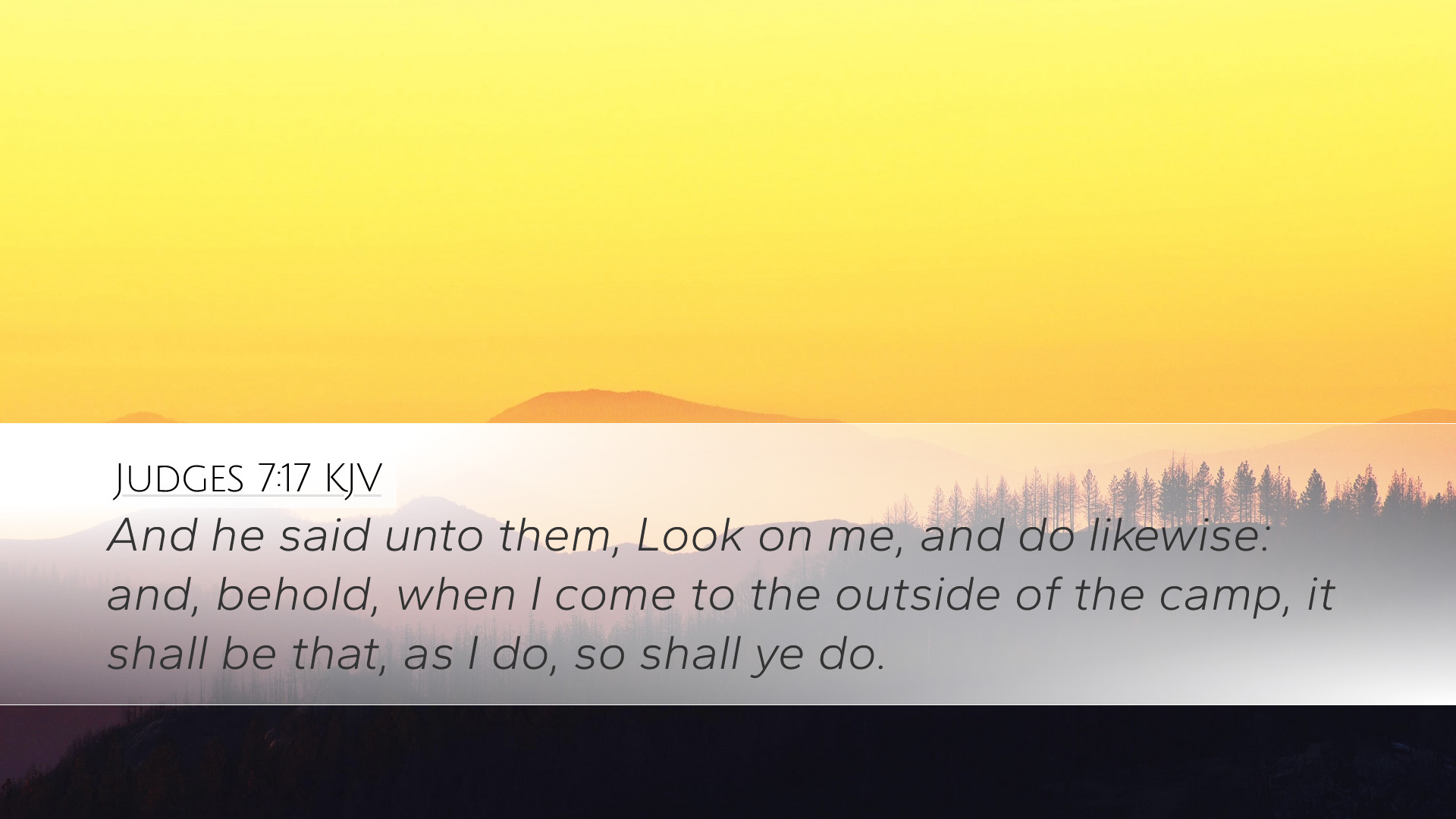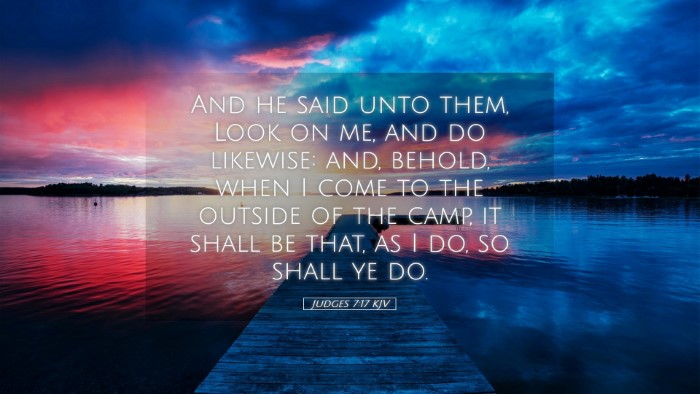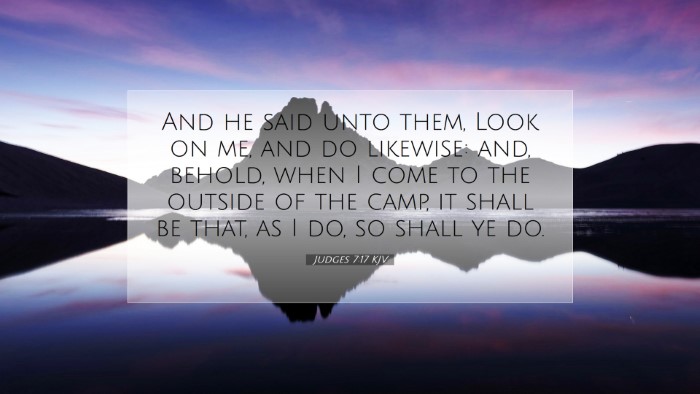Old Testament
Genesis Exodus Leviticus Numbers Deuteronomy Joshua Judges Ruth 1 Samuel 2 Samuel 1 Kings 2 Kings 1 Chronicles 2 Chronicles Ezra Nehemiah Esther Job Psalms Proverbs Ecclesiastes Song of Solomon Isaiah Jeremiah Lamentations Ezekiel Daniel Hosea Joel Amos Obadiah Jonah Micah Nahum Habakkuk Zephaniah Haggai Zechariah MalachiJudges 7:17
Judges 7:17 KJV
And he said unto them, Look on me, and do likewise: and, behold, when I come to the outside of the camp, it shall be that, as I do, so shall ye do.
Judges 7:17 Bible Commentary
Commentary on Judges 7:17
Judges 7:17 states: "Look at me and do likewise; when I come to the edge of the camp, you shall do as I do." This verse captures a pivotal moment in the military strategy laid out by Gideon as he prepares to confront the Midianites. In this commentary, we will explore the various insights gathered from respected public domain commentaries.
Contextual Analysis
The context of Judges 7 is vital to understanding the significance of Gideon's words. The Gideon narrative unfolds within a larger backdrop where Israel is oppressed by the Midianite forces due to their sins against God. God raises Gideon as a leader, transforming him from a timid individual into a bold warrior. Here, Gideon’s leadership exemplifies what it means to rely on God’s guidance and power.
Leadership and Example
In Judges 7:17, Gideon emphasizes the importance of leading by example:
- Imitation in Leadership: Gideon invites his men to mimic his actions, representing the principle that leaders must be exemplary. Matthew Henry notes, “A leader must always walk ahead of his followers, not just in presence but in actions and faith.”
- Authority and Submission: Gideon holds authority as he leads his men into battle, yet he encourages them to share in the envisioned victory through their obedience and imitation of his actions. Albert Barnes highlights that this principle applies to spiritual warfare where followers look to their leaders for guidance.
- Courage in Community: Adam Clarke remarks on the collective nature of the act. Gideon's boldness becomes contagious, urging his men to display courage that is collective rather than individualistic.
Theological Insights
From a theological perspective, Gideon’s command also involves significant spiritual implications:
- Divine Guidance: Gideon’s instruction to observe him is a request to remain attuned to God’s strategy and timing. Keith's comments emphasize that “God often works through the obedience of imperfect leaders to fulfill His plans.”
- Identity and Purpose: Gideon symbolizes Israel's identity restored through faith. As the warriors emulate Gideon, they also participate in God's redemptive purpose. This perspective resonates through the writings of Clarke who indicates this is a reflection of a greater theological truth where God’s people are called to reflect His character.
- Preparation for Battle: As Gideon prepares for battle, this moment emphasizes the need for unity and preparedness within the body of believers. Barnes reflects that spiritual warfare demands that followers of Christ are aligned and ready to act: “This is the essence of Christian community—the coordinated movement of believers under the leading of Christ.”
Lessons for Integration
The rich tapestry of interpretation provides various practical lessons:
- Following God's Command: The necessity of following God's directives as spoken through leaders. This raises questions about our own obedience in light of God's commands.
- The Role of a Leader: Leadership involves more than authority; it embodies servanthood and example. Leaders must embody the qualities they seek to inspire in their followers.
- Building Trust and Cohesion: Gideon's approach fosters trust and promotes unity. Churches and faith communities should foster environments where leaders lead by example, cultivating a sense of shared mission.
Conclusion
The phrase “Look at me and do likewise” embodies what it means to lead and follow in faith. As Gideon sets the stage for an impending victory, the qualities his leadership exhibits—courage, faith, and obedience—serve as a timeless call for believers today. It challenges pastors, students, and scholars alike to examine their lives in terms of leadership and community engagement, echoing the call to reflect Christ as a model for a missional life.


